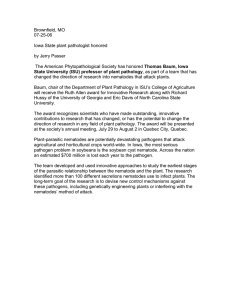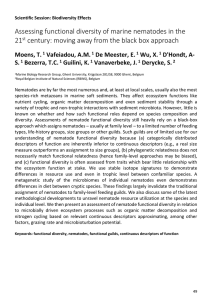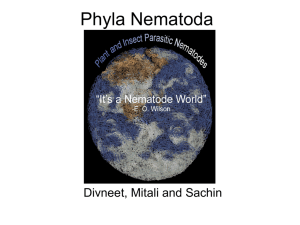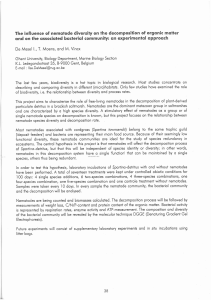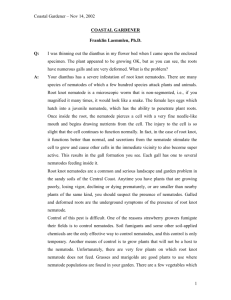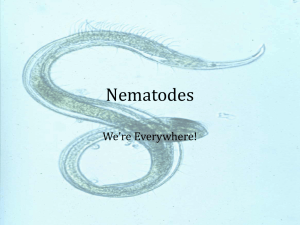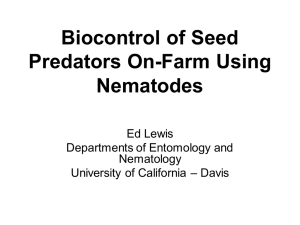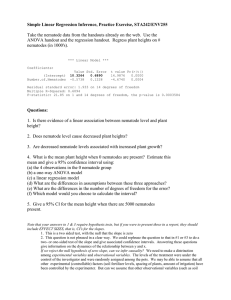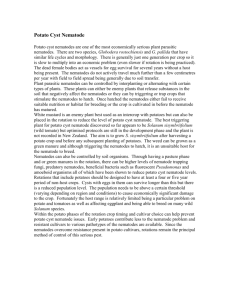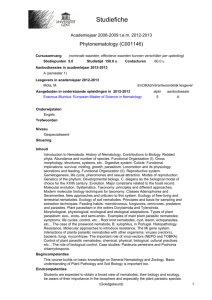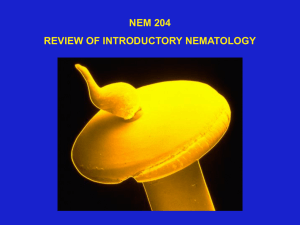CRS 7208APPLIED PLANT NEMATOLOGY
advertisement
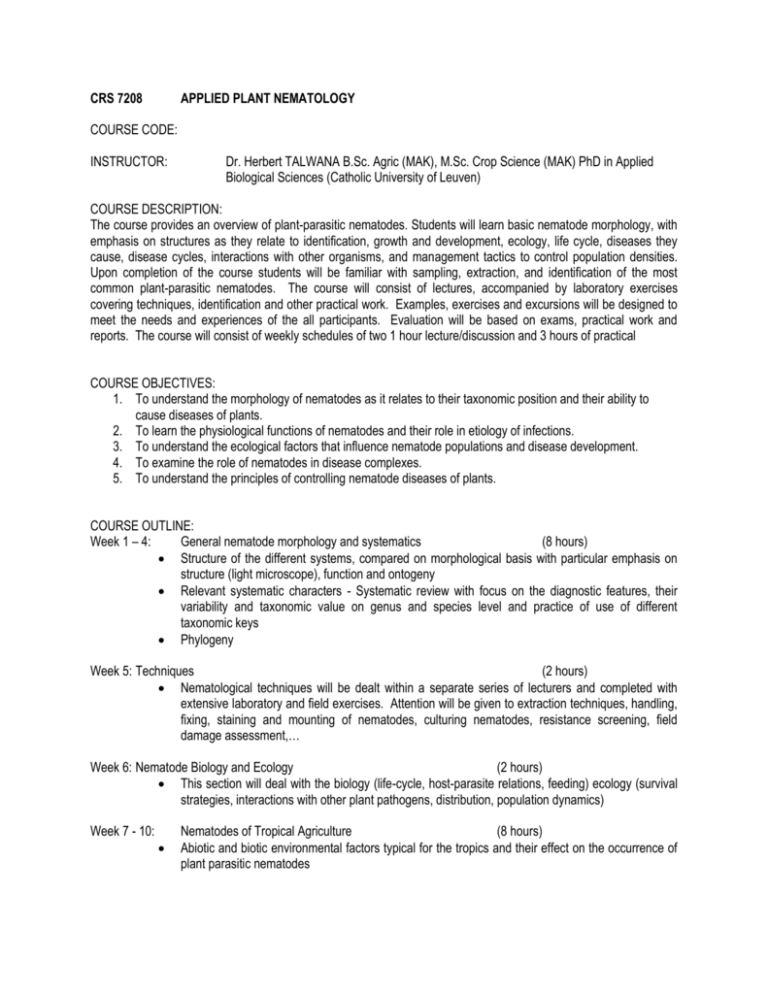
CRS 7208 APPLIED PLANT NEMATOLOGY COURSE CODE: INSTRUCTOR: Dr. Herbert TALWANA B.Sc. Agric (MAK), M.Sc. Crop Science (MAK) PhD in Applied Biological Sciences (Catholic University of Leuven) COURSE DESCRIPTION: The course provides an overview of plant-parasitic nematodes. Students will learn basic nematode morphology, with emphasis on structures as they relate to identification, growth and development, ecology, life cycle, diseases they cause, disease cycles, interactions with other organisms, and management tactics to control population densities. Upon completion of the course students will be familiar with sampling, extraction, and identification of the most common plant-parasitic nematodes. The course will consist of lectures, accompanied by laboratory exercises covering techniques, identification and other practical work. Examples, exercises and excursions will be designed to meet the needs and experiences of the all participants. Evaluation will be based on exams, practical work and reports. The course will consist of weekly schedules of two 1 hour lecture/discussion and 3 hours of practical COURSE OBJECTIVES: 1. To understand the morphology of nematodes as it relates to their taxonomic position and their ability to cause diseases of plants. 2. To learn the physiological functions of nematodes and their role in etiology of infections. 3. To understand the ecological factors that influence nematode populations and disease development. 4. To examine the role of nematodes in disease complexes. 5. To understand the principles of controlling nematode diseases of plants. COURSE OUTLINE: Week 1 – 4: General nematode morphology and systematics (8 hours) Structure of the different systems, compared on morphological basis with particular emphasis on structure (light microscope), function and ontogeny Relevant systematic characters - Systematic review with focus on the diagnostic features, their variability and taxonomic value on genus and species level and practice of use of different taxonomic keys Phylogeny Week 5: Techniques (2 hours) Nematological techniques will be dealt within a separate series of lecturers and completed with extensive laboratory and field exercises. Attention will be given to extraction techniques, handling, fixing, staining and mounting of nematodes, culturing nematodes, resistance screening, field damage assessment,… Week 6: Nematode Biology and Ecology (2 hours) This section will deal with the biology (life-cycle, host-parasite relations, feeding) ecology (survival strategies, interactions with other plant pathogens, distribution, population dynamics) Week 7 - 10: Nematodes of Tropical Agriculture (8 hours) Abiotic and biotic environmental factors typical for the tropics and their effect on the occurrence of plant parasitic nematodes Identification, life-cycle and host interactions of the most important nematodes associated with: - Cereals (rice, maize, sorghum, millet) - Root and tuber crops (cassava, sweetpotato, yam) - Oil and protein rich seed crops (bean, ground nuts) - Fruit crops (banana and plantain, pineapple) - Oil palm, coconut, cotton Nematode management in tropics Week 11 – 13: Entomopathogenic nematodes (6 hours) This section will deal with the biology of different entomopathogenic nematode (EPN) species with special emphasis on the genera Steinernema and Heterorhabditis. We will look at the morphology, taxonomy, life cycle of EPNs, their symbionts, their ecology and their potential as bio-control agents. Week 14: Course test Week 15: Student private revision and one – to – one consultation Week 16 – 17: Final examinations COURSE STRUCTURE & LOCATION 3 Credit units: 30 lecture hours (2 contact hour per week for 15 study weeks) and 30 practical hours (1 contact hour per week for 15 study weeks). Lectures will be conducted from the East Laboratory GRADING Course assignments Course test Final examinations 20 marks 20 marks 60 marks TEXTS Plant parasitic nematodes in subtropical and tropical agriculture, M. Luc, R.A Sikora and J. Bridge 2005. Nematode morphology, physiology, and ecology - Zhiongxiao Chen, Senyu Y. Chen, Donald Ward Dickson - 2003 R. N Perry and M Moens. Plant Nematology.2006. CABI Publishing: Wallingford, UK. END
